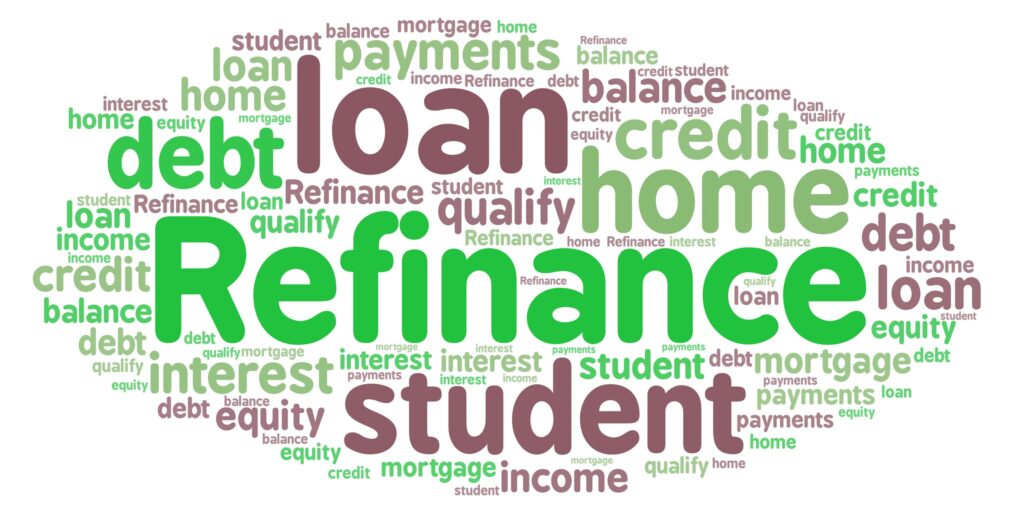
As mortgage rates sit at decade record highs, it’s no surprise to see and hear countless ads on social media and the radio that one “should refinance their mortgage” before rates go higher. Even during periods of decreasing rates, one “should refinance their mortgage” to take advantage of lower rates. It’s obvious to us that mortgage companies want borrowers to consider refinancing their mortgages regardless of where rates are. We aren’t faulting them, but in our fiduciary opinion, one “should refinance their mortgage” only when it is in their best interests.
How to determine when one should refinance their mortgage
It’s important to understand how interest rates work within mortgages and their impact on the amortization schedule. With the help of an example, we can illustrate the effects of mortgaging your home. Let’s assume you are purchasing a $450,000 home, 20% down, at 4.75% annual interest over 30 years. This results in a $360,000 mortgage with a Principal and Interest payment of $1,877.93 per month.[1]
The amortization schedule shows that $1,425 of the payment will apply to interest while $452.93 towards the principal of the loan. Each successive monthly payment will decrease the interest portion and increase the principal portion. The interest is front-loaded to the earlier years of the mortgage. And then vice versa towards the later years. It’s important to understand this because it can help determine when one should refinance their mortgage. And here’s why. If you pay this mortgage as agreed, then you will have paid $316,054.95 in interest over the life of your loan. That’s a lot of money not going in your pocket!
Why is this so important? Because each time one refinances their mortgage, it resets the amortization schedule. This can be a good or bad thing depending on how the numbers play out.
Holding all else equal, either refinancing from a 30 to a 15 year, refinancing to a lower interest rate, and/or adding additional payments usually have the effect of reducing total interest paid over the life of the loan.
On the other hand, holding all else equal, resetting from a 30 year to a new 30 year, using home equity to pay off consumer debt, or allowing forbearance programs to continue, usually have the effect of increasing the total interest paid.
There are, of course, exceptions to the above
We hear ads consistently tout the benefits of refinancing to pay off credit cards, student loans, and car loans. Because mortgage companies don’t have a fiduciary responsibility, they rarely must determine if that is in your best interests. It’s up to you to determine if it makes the most sense in your specific situation. Using equity to refinance credit cards, for example, won’t allow the mortgage interest on that portion of the loan to be deductible. It will also increase your balance owed and spread your payments over the life of the loan.
“But it’s at a lower rate!” That may be true; but behavioral finance can cause further problems if you don’t address why the balance of the credit card grew over time. If this is left unresolved, one risks allowing the credit card balance to continue to grow.
All credit card debt isn’t bad debt. It’s a great way of building credit that allows one to borrow at the best rates when used responsibly. Our job as advisors is to provide advice that is sometimes hard to swallow. But, that allows clients to better position themselves towards accomplishing their most important financial goals. It’s not always easy, but tiny adjustments now can have immense changes years later.
In the end, one must compare the total interest and costs paid over the current mortgage versus the new mortgage. This may include additional comparisons of consumer debt balances and total interest over the life of those loans plus the opportunity costs of these choices. You need to answer: does refinancing this debt put me in a better financial position when it’s paid back?
Navigating this challenging financial life is no casual walk in the park. The good news is that you don’t have to travel alone. We help clients of all backgrounds make challenging decisions like deciding when they should refinance their mortgage. If you’re tired of the confusion of doing it alone or if you have existing advisors that just aren’t cutting it, consider getting in touch today. We’re fiduciaries first, which means we’ll provide the advice that is in your best interests, not in the interests of us or the mortgage company’s bottom line.
[1] Ignoring property taxes and homeowner’s insurance premiums
